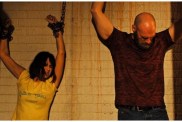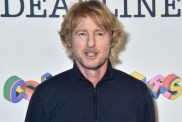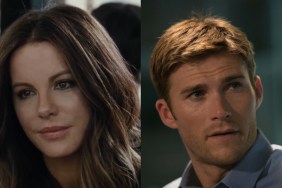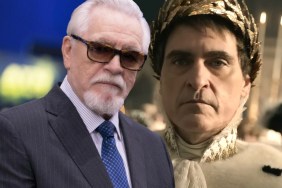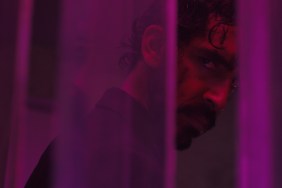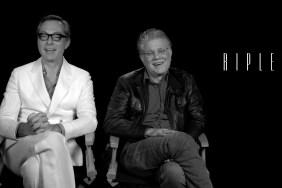
With all the excitement surrounding Ridley Scott‘s upcoming film Prometheus marking the director’s much anticipated return to the world of Alien, which he brought to life back in 1979, I’ve heard many people reference Scott’s 1977 directorial debut, The Duellists. Strangely I’ve heard it mentioned not only because Scott has a new film coming out, but I’ve read it mentioned in articles discussing its accomplished cinematic swordplay. My interest was piqued and I took to Netflix.
Based on Joseph Conrad‘s 1908 short story “The Duel” (download it for free here), which itself is based on a true story, The Duelists centers on Armand d’Hubert (Keith Carradine) and Gabriel Feraud (Harvey Keitel), a pair of officers in Napoleon’s army. The film begins with Feraud in a duel with a man we’ll later learn is the nephew of the Mayor of Strasbourg. Upon wounding him, though not fatally, d’Hubert is charged with placing Feraud under house arrest for further investigation. Feraud doesn’t take too kindly to the charges.
Feraud — whom we quickly recognize as a rather rash, impulsive and pride-filled man — challenges d’Hubert to a duel. After refusing at first, d’Hubert gives in and the duel ultimately ends with Feraud’s arm being injured along with his pride for which he demands satisfaction.
For the next six years, whenever fate places the two men in the same place at the same time, Feraud challenges d’Hubert. And, despite Feraud’s questionable view of honor, d’Hubert reluctantly continues to accept.
The story itself is simple and to the point, so much so that I couldn’t help but wonder if I was missing something. Looking closer and expanding on what takes place you could look at it as a story exposing the senselessness of war not to mention man’s occasionally unreasonable sense of honor, guided merely by wounded pride rather than any form of actual dignity.
In that sense The Duellists becomes a character study and by the film’s end I think the argument stands that neither man truly wins, even though one would appear to have the upper hand.
However, it’s not the story that really stands out here as much as the execution and the ability for anyone watch and instantly recognize Scott’s talent and remarkable cinematic eye. So I began exploring, first with Scott’s audio commentary included on the 2002 special edition DVD as well as watching the 30-minute featurette in which he sits down with director Kevin Reynolds (Waterworld) to discuss the film. Reynolds gives The Duellists credit for influencing his career and, notably, his 2002 remake The Count of Monte Cristo starring Jim Caviezel. Their conversation coupled with Scott’s commentary is extraordinarily revealing and the following is what I came away with.
In the Beginning
The Duellist was Scott’s fourth attempt at a feature film. One prior attempt at a feature was called Castle X, which was to be for the Bee Gees, another was a Canadian heist film titled Ronnie and Leo and the other was a take on the Guy Fawkes story titled The Gunpowder Plot, which was actually written by Duellists screenwriter Gerald Vaughan-Hughes. Interestingly enough, The Duellists was Vaughan-Hughes’ final screenplay, though Scott does mention in his commentary that he may return to The Gunpowder Plot script some day.
Ronnie and Leo actually came close to being made with Michael York and Ernest Borgnine attached along with nearly $1.7 million in financing, but in the end it wasn’t to be.
So, as Scott puts it, with over 1,500 commercials to his credit The Duellists would become his feature debut. Paramount gave him $900,000 to make the film and with a crew of 75 he made the film, which was largely shot in France, in 58 days, 56 of which he says it rained. Considering we’re talking about a film that was largely shot outdoors, that’s rather significant.
The Cast
For his leads Scott landed Keitel and Carradine, who were among a list of four actors Paramount gave him saying he needed to cast two of the four. After deciding on Keitel and Carradine he had to go about convincing them to star in the film. Even after landing them both he almost lost Carradine, who had a #1 song at the time and almost had to walk from the production to go on tour.

But the names don’t end there. Along with Keitel and Carradine, the film also features small performances from Tom Conti (Merry Christmas Mr. Lawrence), Albert Finney (Tom Jones, Erin Brockovich), Robert Stephens (Empire of the Sun), Pete Postlethwaite (The Usual Suspects), Edward Fox (Gandhi) and it’s narrated by Stacy Keach (American History X).
Finney, as it turns out, came on board as a result of dating the one of the film’s co-stars at the time, Diane Quick. Scott couldn’t afford another actor and when asked, Finney requested to see the rushes and maybe he would do it. Ultimately he agreed and all it cost Scott was a “crate of good champagne”.

Scott would even turn to his sons Jake and Luke to play small parts in the film. Jake, as a matter of fact, is now a director in his own right and directed the viral here).

How about one more casting nugget? You see that man in the still above, that’s Matthew Guinness playing Feraud’s first opponent. Recognize the last name? You should, because Matthew is Alec Guinness‘ son.
